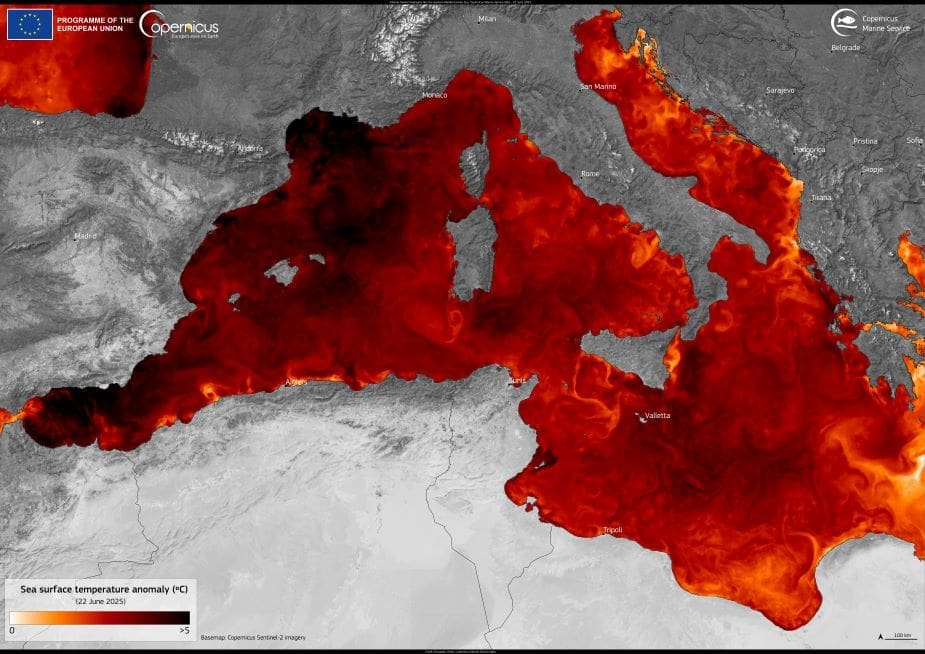Paris, France | AFP
The Mediterranean Sea on Sunday hit its warmest temperature on record for June at 26.01 degrees Celsius, said a French weather service scientist, citing data from EU monitor Copernicus.
“We have never measured such a high daily temperature in June, averaged over the basin, as Sunday,” said Thibault Guinaldo, a researcher at the Centre for Satellite Meteorology Studies under Meteo-France.
At present, sea surface temperatures in the Mediterranean are 3°C higher than average for the same period compared to 1991-2020, with spikes exceeding 4°C around the French and Spanish coasts, he added.
“Given the week we’re going to have in terms of weather conditions, unfortunately it’s not going to get any cooler,” Guinaldo said.

It comes as Europe swelters through summer’s first major heatwave, with Spain and Portugal setting new temperature highs on Monday as France, Italy and Britain also sizzled.
The oceans are a vital regulator of Earth’s climate, absorbing some 90 percent of the excess heat in the atmosphere caused by humanity’s burning of fossil fuels.
The Mediterranean region is warming faster than the global average and scientists say that climate change is making marine heatwaves more frequent and powerful.
Since 2023, there have been consistent waves of abnormally high temperatures. The Mediterranean hit a new all-time high temperature of 28.47°C in August 2024, blitzing the previous record set in July 2023.
The basin is also cooling much more slowly during the winter months: every year since 2023 has experienced well above average temperatures between October and April, said Guinaldo.
This has prolonged extreme conditions year round that harm sea life, reduce fish stocks and whip-up stronger storms that make landfall with devastating consequences.
A 2022 study found that marine heatwaves in the Mediterranean between 2015 and 2019 caused widespread death in around fifty underwater species including corals, sea urchins and mollusks.
aag-np/db
© Agence France-Presse
Article Source:
Press Release/Material by AFP
Featured image credit: George Desipris | Pexels




